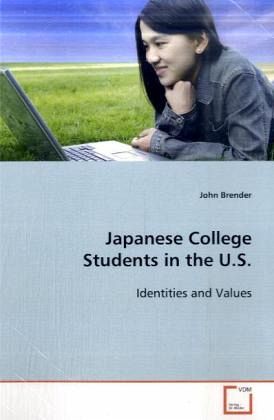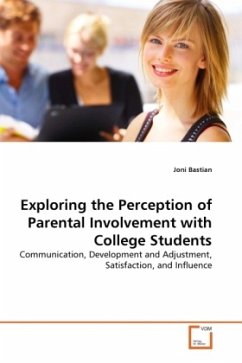
Japanese College Students in the U.S.
Identities and Values
Versandkostenfrei!
Versandfertig in 6-10 Tagen
52,99 €
inkl. MwSt.

PAYBACK Punkte
26 °P sammeln!
Studying in a foreign country--especially at a youngage--can change one s outlook and personal valuesystem. Although becoming bi-cultural ormulti-cultural may have certain advantages, beingcaught between two or more worlds with differingvalues can also be rather troubling. Who am I? issomething we all ask ourselves, but this question mayresonate more loudly for young international studentswho find themselves rethinking the values they wereraised with and the contrary values to which they areintroduced. In this book, the author explores howJapanese undergraduates perceive differences inJapanese...
Studying in a foreign country--especially at a young
age--can change one s outlook and personal value
system. Although becoming bi-cultural or
multi-cultural may have certain advantages, being
caught between two or more worlds with differing
values can also be rather troubling. Who am I? is
something we all ask ourselves, but this question may
resonate more loudly for young international students
who find themselves rethinking the values they were
raised with and the contrary values to which they are
introduced. In this book, the author explores how
Japanese undergraduates perceive differences in
Japanese and American values and how they perceive
themselves in the midst of these often opposing
influences. This book is poignant for international
students and professionals and for all those who work
with and find reason to understand the increasing
number of people around them who are the
product of two or more cultural influences.
age--can change one s outlook and personal value
system. Although becoming bi-cultural or
multi-cultural may have certain advantages, being
caught between two or more worlds with differing
values can also be rather troubling. Who am I? is
something we all ask ourselves, but this question may
resonate more loudly for young international students
who find themselves rethinking the values they were
raised with and the contrary values to which they are
introduced. In this book, the author explores how
Japanese undergraduates perceive differences in
Japanese and American values and how they perceive
themselves in the midst of these often opposing
influences. This book is poignant for international
students and professionals and for all those who work
with and find reason to understand the increasing
number of people around them who are the
product of two or more cultural influences.












